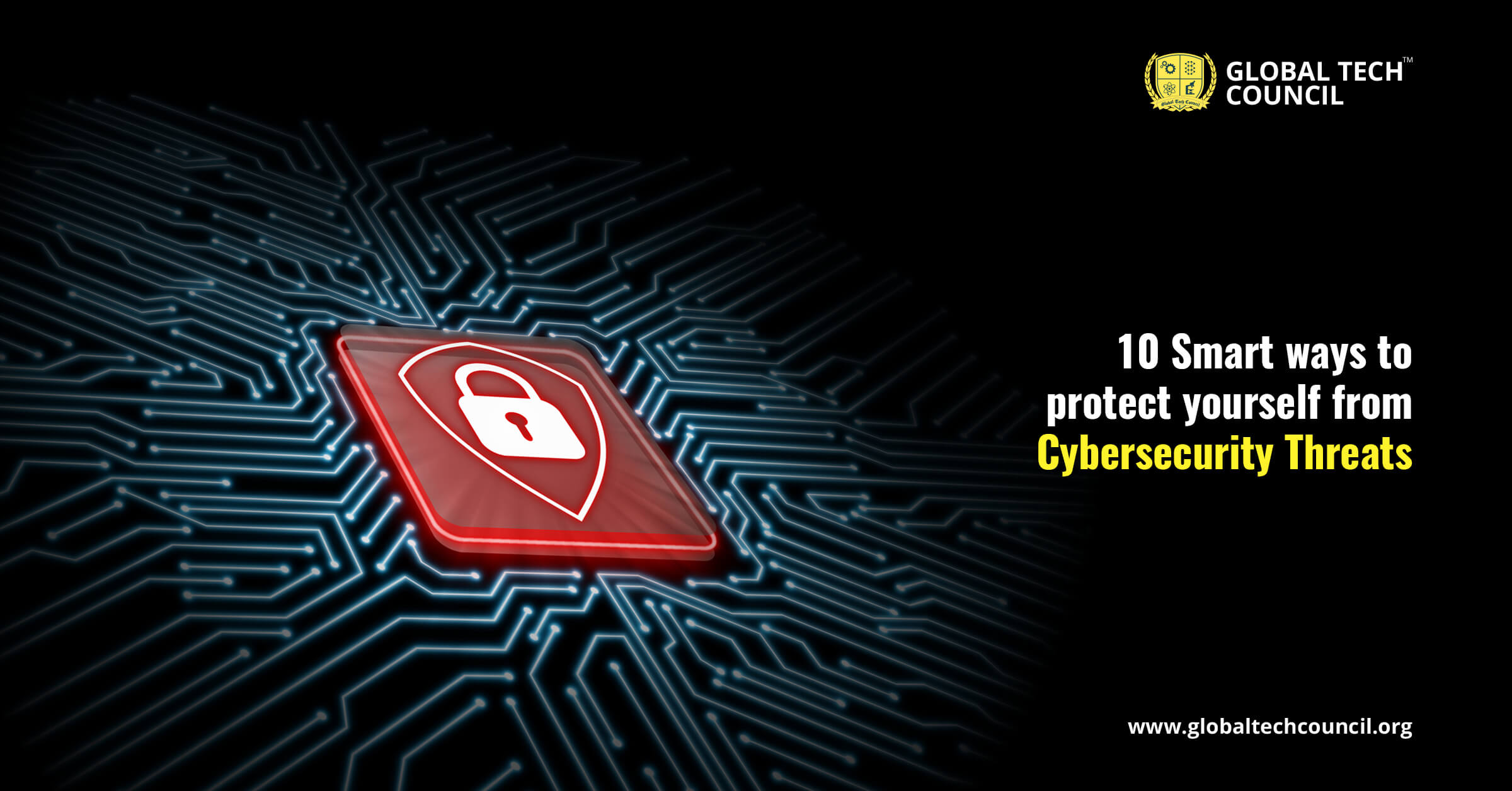
You may believe that the surest type of cybercrime you need to be concerned about is hackers taking your banking data. However, maybe it’s not so straightforward. There are considerably more issues to be concerned about than just money. Cybercrime is always changing, with various new dangers emerging each year. Companies can hire certified cybersecurity professionals to make sure that their data is safe. Cybersecurity professionals also provide proper cybersecurity training which helps in educating the employees.
Table of Contents:
- 10 Smart ways to Ensure Safety from Cybersecurity Threats
- Handle your social media carefully –
- Always try to keep a backup copy of every document-
- Make use of strong passwords –
- Boost the performance of your home network-
- Turn on the privacy and security options-
- Be aware of your digital footprint-
- Keep an eye on the youngsters-
- Before you click, consider your options-
- Unfollow useless accounts-
- Make use of a comprehensive internet security suite-
- Conclusion
10 Smart ways to Ensure Safety from Cybersecurity Threats
The ten best practices listed below will help you to keep secure online.
Handle your social media carefully –
Always remember that no matter if you are going to open a new account on a social media platform or just want to log in, make sure to fill up only the required information. Avoid using information that can become a risk factor for you. Check the basic information needed for each profile you make, and think hard before providing anything classed as Personal Identifiable Information. And you must also need to be careful with your login credentials, keep in mind not to share those details with someone. For social engineers it’s a very easy task to achieve information about anyone with minimal data, so be careful before sharing any information.
Always try to keep a backup copy of every document-
Losing important data can be harmful to you as well as for your company. It’s always a good idea to have multiple copies of your most crucial files. Make regular backups and retain a safe offline duplicate to guarantee that ransomware or a technical issue does not obstruct your work. The best approach to recover against ransomware is to have a solid backup.
Make use of strong passwords –
You can safeguard your data from loss by choosing strong and complex passwords. Don’t use the same password on many sites, as well as try to update the passwords frequently. Make them more complicated. This necessitates the use of at least ten characters, numbers, as well as symbols. A password management program can assist you in keeping your credentials secure.
Boost the performance of your home network-
Starting with a powerful encryption password and a proxy server is a wise choice. All information traversing your devices is encrypted until it hits its target, thanks to a VPN. If fraudsters manage to break into your connection line, they will only be able to read the encrypted information. When using a public Wi-Fi connection, whether it’s in a bookstore, cafe, resort, or even in the airport, it’s a smart option to activate a VPN.
Turn on the privacy and security options-
Most social media sites are available to the public by nature, with basic protections or no privacy, including security as an alternative. Make sure to evaluate as well as activate the privacy and protection settings accessible for each profile. Check that the security is adequate for the information or activities you intend to use with your account. Two-factor verification should be used for more safety.
Be aware of your digital footprint-
It’s time you found out what your digital footprint seems like. A digital footprint is information left behind in cyberspace as a consequence of your or someone else’s online activity as well as interactions. Look up yourself on the internet. This step helps identify potentially fraudulent profiles, allowing you to take a proper move by setting up automated digital identity alarms to notify you when your personal data become available online.
Keep an eye on the youngsters-
You would like to discuss the internet with your children, and you’ll also want to assist them in avoiding identity fraud. Children are commonly targeted by cybercriminals because their Social Safety numbers, as well as credit reports, are generally blank slates. When it comes to handling your child’s sensitive details, you may help prevent data loss by being cautious. It’s also a good idea to be aware of the signs that your child’s privacy has been stolen.
Before you click, consider your options-
We are more likely to click on anything; we enjoy clicking on photographs, addresses, websites, and other items. Always be wary of any text that includes an URL and consider whether it was authorized. Are you acquainted with the sender? Before you visit the website that could contain malware, check to see if the person who provided it to you genuinely sent it.
Unfollow useless accounts-
When using any social media, be conscious of the hazards of liking, following websites, or enabling other apps to access your account since many users don’t really have good cyber hygiene when it comes to clearing out their profiles when they’re no longer needed. Information is exchanged, and your followers will retain access to your user profiles unless you remove their account.
Make use of a comprehensive internet security suite-
Internet Security protects you from current and emerging threats, such as ransomware, and actually protects your personal as well as financial details.
Conclusion
The above points will help you in maintaining the proper safety of your valuable information. For using those steps you do not need any cybersecurity experts or any kind of cybersecurity certification. In case you are looking for an all-in-one platform to learn cybersecurity Global Tech Council is the perfect solution for you.